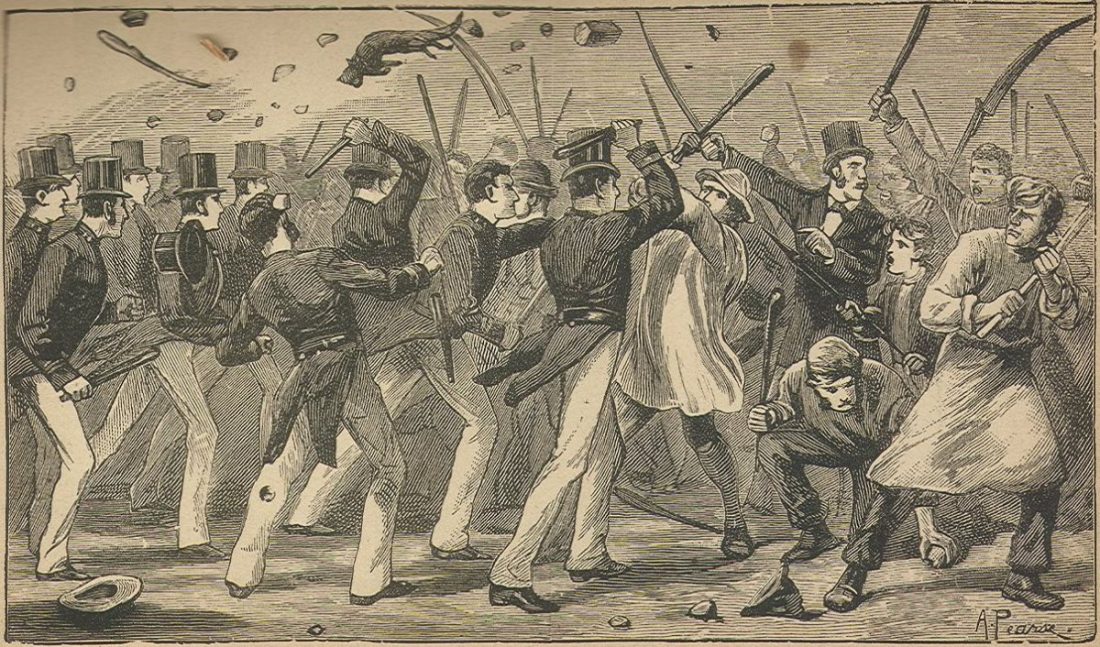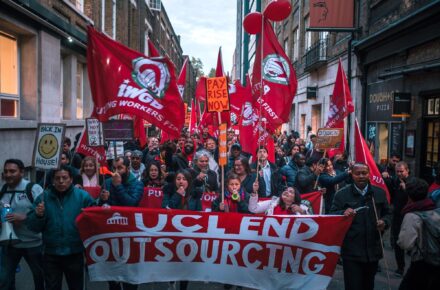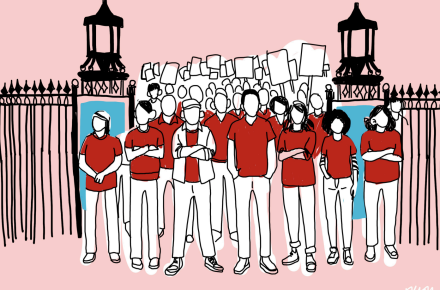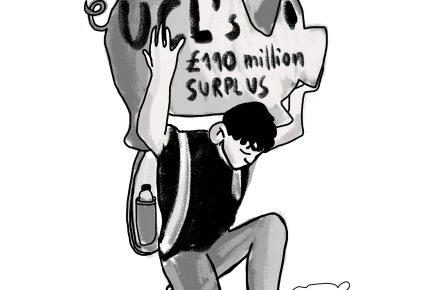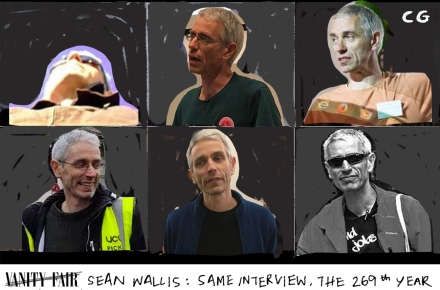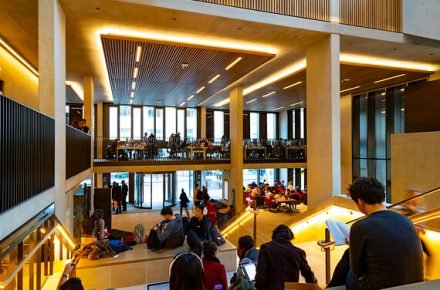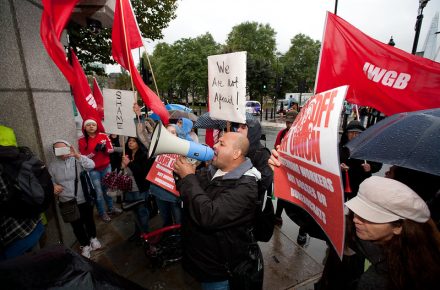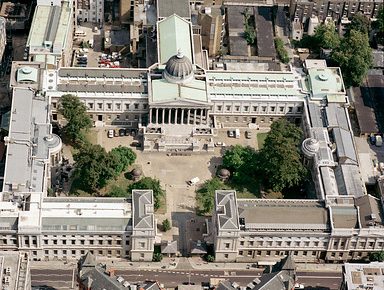It’s hardly the weather for the picket line.
All around campus, small pockets of UCL academics are picketing as part of the national UCU strike. Larger groups, such as that outside the Institute of Education, wear hi-vis vests, and carry placards; others, such as those outside the houses on Gordon Square, are fewer in number and mill around, hats pulled down low over their ears.
“No-one wants to be striking,” says one senior humanities lecturer. Although he isn’t in the UCU, he has elected to join his colleagues on the pavement outside the department. Currently on research leave, he explains that he could work in a UCL library, or in his office, but will instead be spending the afternoon in the British Library, to avoid crossing the picket line.
Unless negotiations are resumed, the fourteen day action will be the longest ever taken by the Union.
Another lecturer says he feels that striking staff have students’ support. The SU UCL general assembly on Tuesday gave resounding support to staff’s decision to withdraw their labour.
But it’s hard to tell how far the couple of hundred students there speak for the whole student body. The motion was coupled with a call for refunds on fees for teaching lost.
Strikers are working hard to win solidarity from their students. There are teach-outs, and all are distributing flyers explaining the reasons for the strike and what students can do to support it.
But as the action drags on, it seems likely that enthusiasm will wane. One lecturer explains that he stands to lose around £1000 over the 14 days.
Of their colleagues still at work inside, “obviously I’d prefer them to be out here,” one explains. But he understands that there are plenty of obstacles. Some are on precipitous contracts; some cannot afford to sacrifice their earnings; for others, it could affect their visa status.
Of course the strike is about pensions, he explains, but in reality it is about much more — the effects of marketisation are vast. The astronomic growth of student numbers is the most obvious outward symptom. But the changing mindset of students — as consumers — is significant.
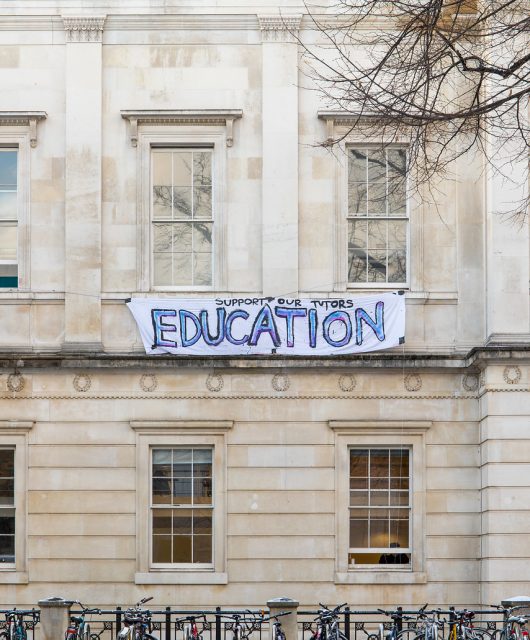
Speaking to The Cheese Grater last week, Florence Sutcliffe-Braithwaite, of UCL History, complained about the effects of marketisation. University administrators “live in a system where universities behave like businesses,” she said. “[UCL] cares about student experience in terms of prestige.”
But she was hopeful. “I think we’ve got a chance for succeeding because of the need for security and dignity in retirement.”
The picketers keep reiterating that they would much rather not be striking, and not just because of the cold.
They’re deeply concerned about the effect of the action on their students. In some departments, tutors have made slides and teaching materials available online; others have rearranged ‘unofficial lectures’. It’s difficult, explain the lecturers on the picket, especially for finalists who are losing significant teaching in the last month of term.
A colleague from inside the department brings out coffee; another has just returned with a box of doughnuts.
“I plan to be here every day I would be teaching,” one lecturer explains.
The strike is beginning with optimism, but it’s hard to say how much that resolve, and the good will of students, will last.
Peter FitzSimons and Elias Fedel

